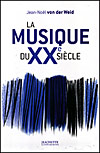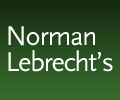|
Domingo at the Met
Giacomo Puccini: Turandot - Live performance1989 - Plácido Domingo (Calaf), Eva Marton (Turandot), Leona Mitchell (Liú), Paul Plishka (Timur), Hugues Cuenod (Emperor), Metropolitan Opera Chorus and Orchestra/James Levine
Design and Stage Direction: Franco Zeffirelli; Video Direction: Kirk Browning
DG 073 058-9 (132 min) Sound 2.0 and 5.1
       
 Added to the body of evidence which has emerged from the avalanche of opera on DVD in recent years, these DG sets gloriously support the proposition that Plácido Domingo has been the greatest singing actor of our age. Domingo is more than a supremely gifted tenor. He brings the characters to life on stage in a uniquely dedicated fashion. In fact, Domingo dominates the first generation of singers to have their art comprehensively and adequately documented in sound and vision. Collectors are the beneficiaries of this expanding legacy — and aren’t we lucky?
There can be no denial of the grandeur of Luciano Pavarotti belting out Nessun dorma directly into a microphone in a big arena. Domingo’s delivery in Act III of Turandot is different: of a piece with the drama but no less affecting. The presentation of Calaf’s vigil approaches the spiritual intensity of a Passion Play in this performance. Eva Marton copes with the role of the homicidally obsessive Princess but her voice does not deliver that last ounce of terror-inducing crystalline penetration (where is Sum Jo when we need her?). Leona Mitchell is fine as the devoted but doomed slave girl and the presence of Paul Plishka and Hugues Cuenod represent luxury casting indeed. From a uniformly splendid supporting cast the vigorous and campy portrayals of Ping, Pang and Pong by Brian Schexnayder, Allan Glassman and Anthony Laciura deserve honourable mention. Musicallly, this Turandot is one of the best things that Levine and the Met Orchestra have ever done, even if the score comes down with a bump in the completion by Franco Alfano. The production is magnificent. Those of us addicted to Zeffirelli extravagance will be thrilled. But for all of the pageantry, colour and excitement of the Chinese masses, this is still Domingo’s show.
The Met first staged Giordano’s Fedora in 1906. This production originated at the Gran Teatre del Liceu, Barcelona. The opera is set in 19th-century Russia, Paris and Switzerland. The plot (which pales in the grim glare of 20th-century reality) revolves around international intrigue, Czarist counter-terrorism, salon society and a badly timed love affair between Princess Fedora (Freni) and Domingo’s fugitive character. The performance provides a glimpse of Domingo the magnanimous because it is Mirella Freni Night at the Met, her last appearance before retiring from the New York stage. The leading man’s participation in Act I is limited to a ten-yard dash punctuated by a collision with a policeman. For the remainder of the opera, Domingo generously defers to Freni (who is marvelous, especially in the duets). Not that he becomes a bystander; his delivery of Amor ti vieta is worth the price of admission alone. Roberto Abbado makes the best of Giordano’s uneven score and Jean-Yves Thibaudet takes on the non-vocal role of a spying piano virtuoso with great success. Good, all-round entertainment. WSH
Published in Vol. 10 No. 8 of La Scena Musicale
Publié dans le Vol. 10 No. 8 dans La Scena Musicale
 | 
|  | La musique du xxe siècle |  | Madama Butterfly |  | Don Quijote de la Mancha |  | Wagner: Die Walküre |  | Monteverdi: L'Orfeo |  | Haendel: Serse |  | Bach |  | Langgaard: Antikrist |  | Schuman Symphonies Nos 7 & 10 |  | Chostakovitch |
|




